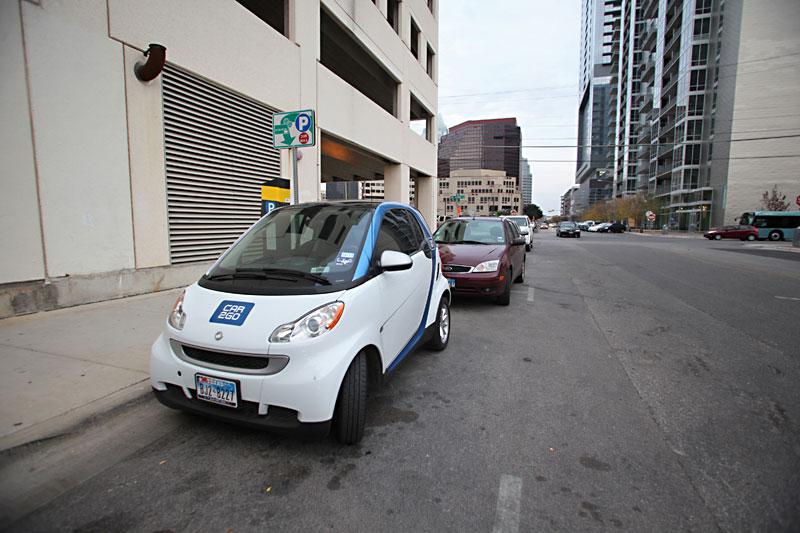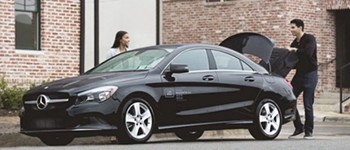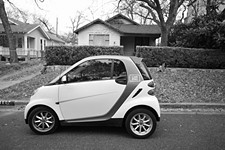Car2Go Offers Promotion for New Members
Through Dec. 6, Car2Go waives its sign-up charge for new members from $35 to $5 and adds 60 minutes of free travel time
By Richard Whittaker, Fri., Nov. 27, 2015
As rideshare firms become synonymous with surge pricing, and Uber gets into an increasingly vitriolic war with City Council, car share service Car2Go is hoping to win some seasonal goodwill with a holiday price cut.
Unlike rideshare companies, where private car owners pick up passengers, car share services like Car2Go are more like short-term car rental services, allowing drivers to book out a vehicle for as short or as long as they need: the longer they have the car, the more they pay. Running through Dec. 6, the company is dropping the sign-up charge for new members from $35 to $5, and throwing in 60 minutes of free travel time. In addition, existing members will see the per-minute fee for signing out a car drop from 41 cents to 19 cents. Paul DeLong, CEO and president of Car2Go North America, described the promotion as a way to both recruit new members and inspire existing members to use the service more regularly.
At the same time, it's also a way to hit back at the rideshare services that have been grabbing headlines and market share. Over the past couple of years, market leaders Uber and Lyft have been locked in an exchange of rate cuts and tariff shifts, and alternative services like Car2Go and public transit got caught in the wake. DeLong said, "From a competitive landscape, we're seeing a challenge from them, and this gives us a chance to get in the game."
It could also provide some local goodwill after a much more contentious change. Earlier this year, the company pulled its Austin home area map back to its smallest footprints in the service's five-year local history (see "Car2Go Closes Ranks," Sept. 25). The change faced criticism from users who found their home or office suddenly cut out of the service area. They faced a tough decision: use Car2Go part of the way to their destination, or potentially spend more money on the same trip, since they could not sign the car back in.
According to DeLong, it was all about the numbers. Before the change, 88% of all trips were in the current home area, and while the other 12% may have been good for those drivers, as soon as they parked in the outlying areas, those vehicles could remain unused indefinitely. For a business based on providing vehicles for multiple short trips, that's bad news, especially if a customer in a high-usage area can't find a car because it's been sitting in a low-usage area for days. DeLong said, "The one thing that our membership base was giving us feedback on was availability."
Concentrating on the Downtown area made business sense – and Car2Go is a business. In Austin, 90% of all journeys are less than 30 minutes, while the average trip is a three-mile, 15-minute, one-way. The bulk of those short hops are in the central core – a reflection of the increase in the Downtown population and lower car ownership in those areas.
DeLong admitted that the change "created some confusion for people who live in low-utilization areas." However, he said, "I'm not getting paid to put my cars in areas where they're not getting used."
While commercial necessities inevitably drive decisions, DeLong argues that the changes in pricing and service areas will embed his firm deeper in the matrix of transit options, and continue to move Austinites from the current paradigm of what is effectively mandatory car ownership. He said Car2Go "complements Cap Metro, complements B-cycle, complements all the other modes of transport out there."
Got something to say on the subject? Send a letter to the editor.











